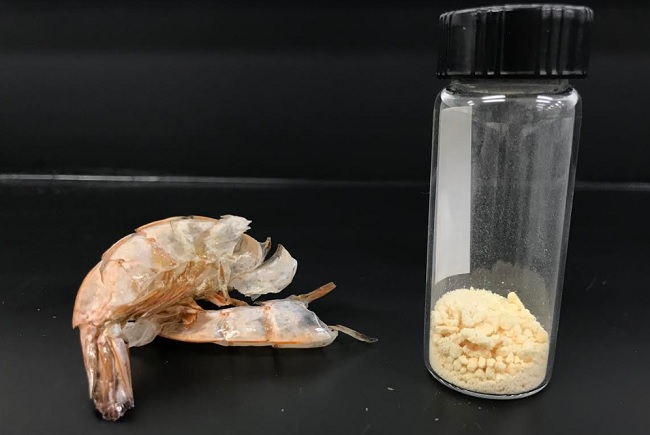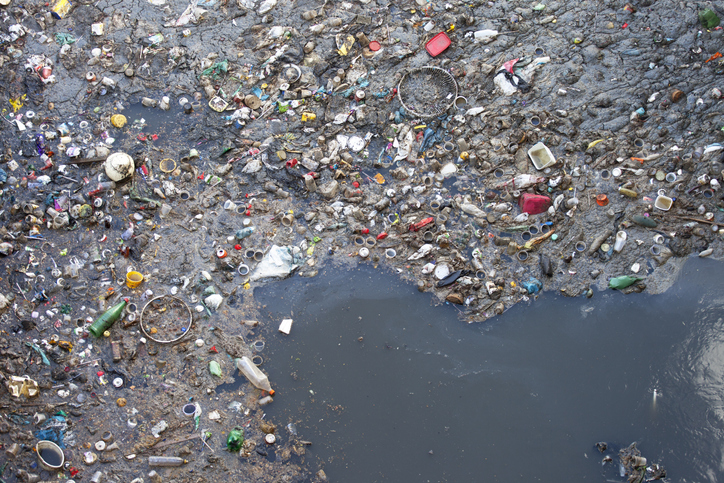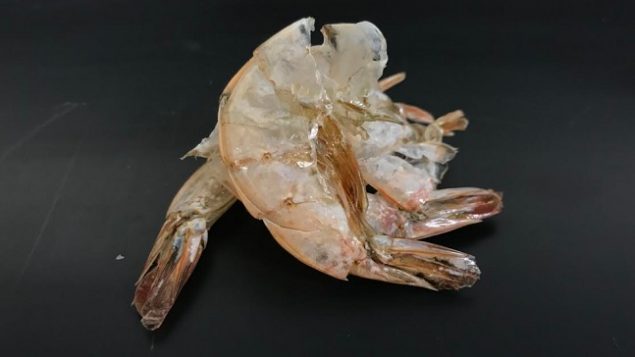Scientists at McGill University have found a way to make plastics on a large scale from the shells of lobster, shrimp and other crustaceans as well as insects. There already are plastics that are biodegradable but the process of breaking them down can be difficult and take a long time. Researcher Thomas Di Nardo says plastic made from creatures’ shells is much better.

The shell of the shrimp was ground up to produce Chitosan which can be made into plastic. (Thomas Di Nardo)
‘Directly from nature, directly back to nature’
“Because it comes directly from nature and is slightly or not modified, it can go directly back into nature, right into that life cycle,” says Di Nardo. “You don’t need anything special. All the bacteria (to break it down) already exist. Other creatures that would eat it already exist. So, we don’t have to worry about that whole system.”
New plastics could be composted, reducing pollution
The plastics could be used to make food packaging, 3D printing, cutlery and for biomedical materials such as implants or stitches.
It will take five to 10 years to develop the plastics for this kind of use, but once that is done they can be composted or recycled, and reduce the plastic waste that currently goes into the environment.

Plastic waste already chokes several water and land environments. (iStock)
A great need to reduce plastic waste
According to the non-profit Recycling Council of Ontario, 8.3 billion tons of plastic have been generated in the world since the 1950s. And only 23 per cent of it has been recovered or recycled. It’s estimated another 12 billion tonnes of plastic will be thrown out by 2050.
The secretary-general of the United Nations has said if nothing is done, plastic could outweigh fish in the world’s oceans by 2050.

(photo: Jennifer Cholette)
Thomas Di Nardo explains how the shells of creatures can be turned into biodegradable plastics.
Listen






For reasons beyond our control, and for an undetermined period of time, our comment section is now closed. However, our social networks remain open to your contributions.